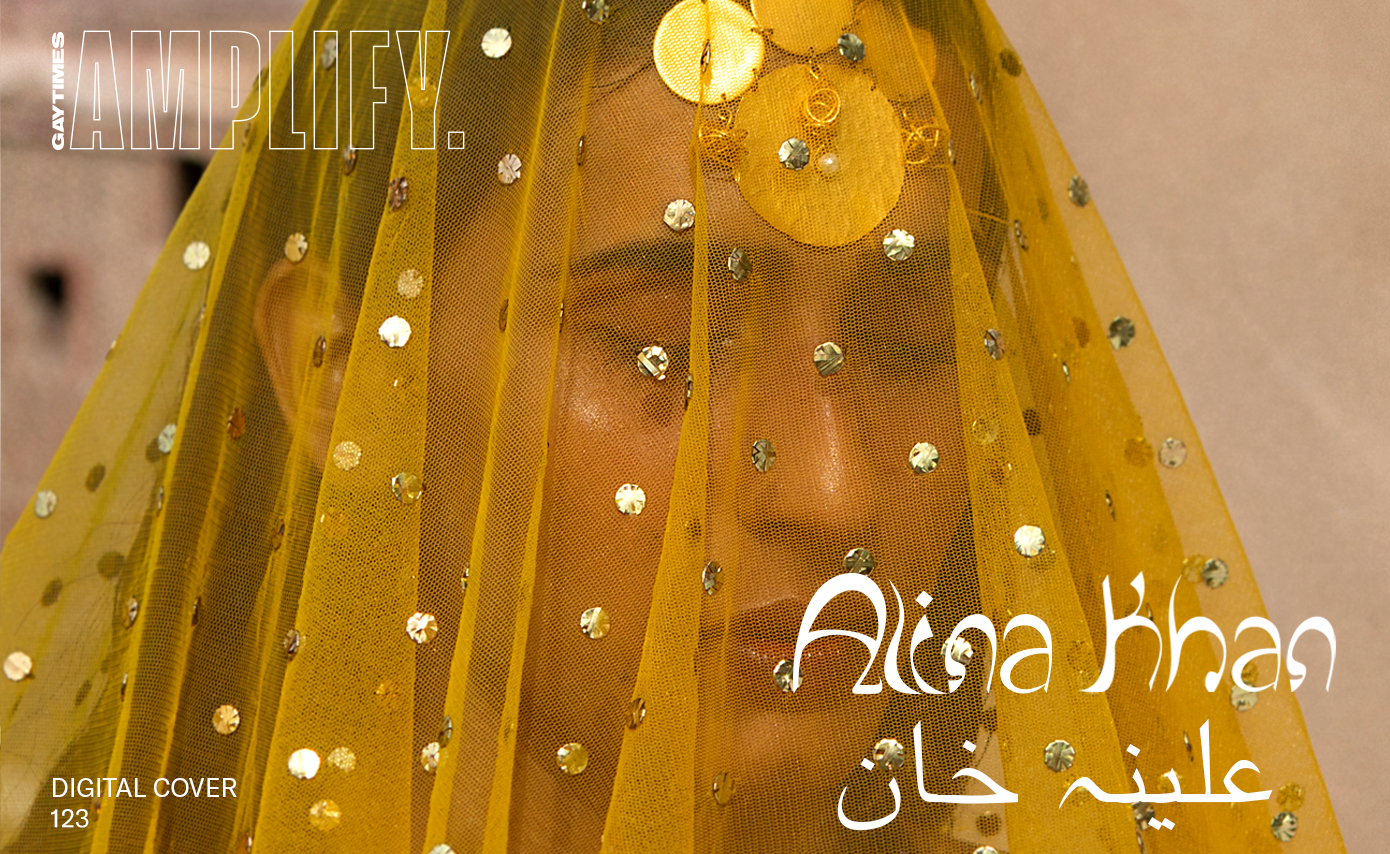
“There was a lot of money, but no peace in life. I needed acceptance and respect,” Alina Khan tells GAY TIMES from Lahore’s Shalimar Gardens. A leading actress in Joyland, Saim Sadiq’s Oscar-shortlisted film, Khan effortlessly embraces the screen as Biba; a transgender dancer with a dream. There are so many layers to Joyland that one watch is not enough. The movie, set in Islamabad, follows a working-class joint family household caught in the turmoil of economic difficulties and the pressures of the patriarchy. A quintessential family unit of two sons Haider and Saleem (Ali Junejo and Sohail Sameer), their wives Mumtaz and Nuuchi (Rasti Farooq and Sarwat Gilani) follow the guidance and demands of the house’s patriarch Rana (Salman Peerzada). Haider, a boyish soft-spoken protagonist, naively takes central focus as he introduces us to the alluring Biba.
I first watched Joyland, in Karachi, overcome by goosebumps and dim yellow light as the closing credits rolled down the screen. I had never felt such deep sadness and immense hope from a film before. I remember the unforgiving silence of that packed hall as the final scene faded out. And, even now, I can recall how every person sitting in that cinema knew, despite the country-wide brewing backlash against Joyland, we had all witnessed something truly special.
Although Joyland is not a queer film, it is a powerful movie that draws stories together and encapsulates so much of hidden Pakistani life. Sadiq’s focused lens on the trans community seamlessly mirrors the times we are living in. Joyland does not seek to offer a slick fix-all commentary on South Asian identity but opts only to tell honest stories of Pakistanis. And, with the support of executive producers Malala Yousafzai and Riz Ahmed, the elegant movie has broadened its reach. An unflinching exploration of affection, unity and fate, the movie follows the bond between Haider, a cis-gender married man and the strong-willed Biba.
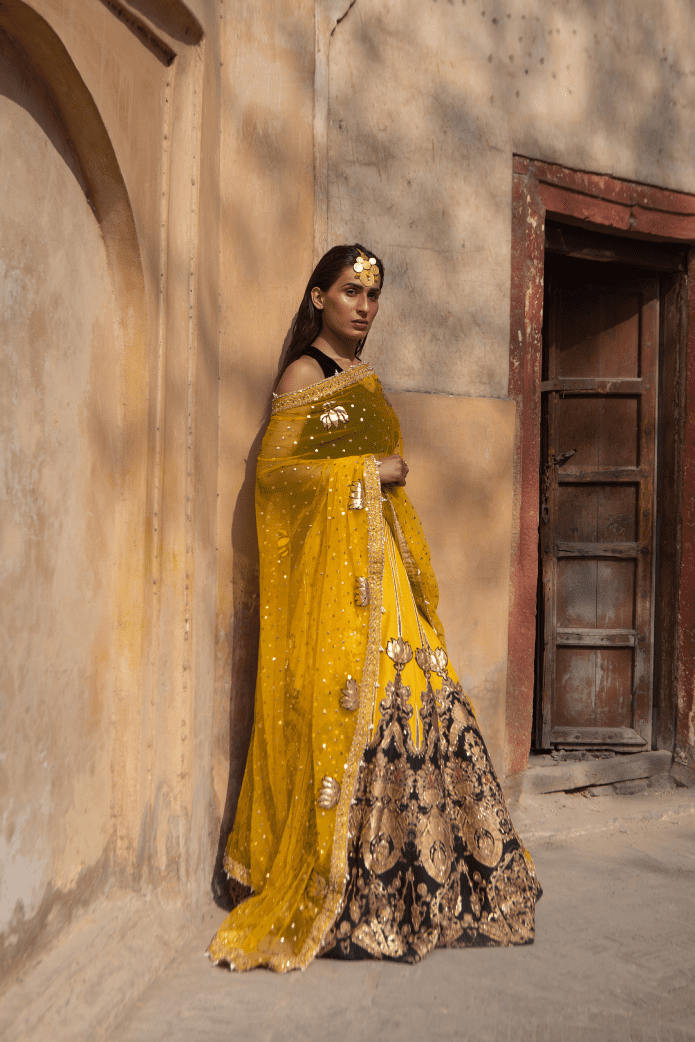
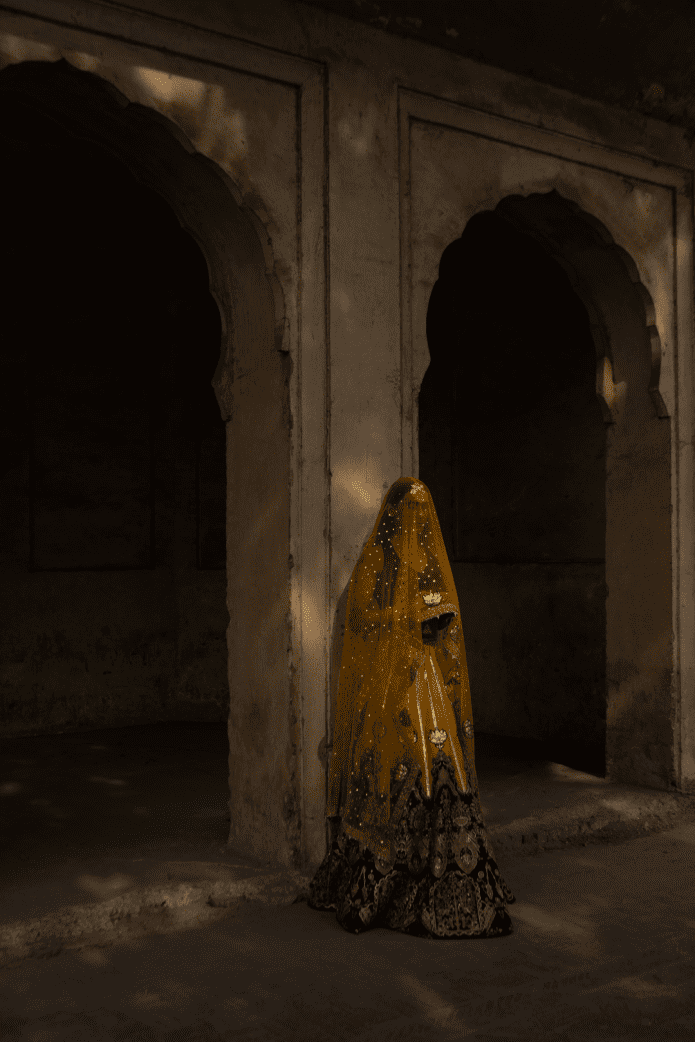
Khan, only 24 years old, solidifies herself as a captivating star. Fulfilling the role of Bila, a transgender dancer, who aspires to achieve fame and financial freedom, commands a crew of backup dancers (one of whom is Haider). Fierce and unforgettable, Khan’s expression of Bila sticks with you. Behind each scene and strand of dialogue, her humanity and struggle truly shine. Whether she is challenging the crude jokes sent her way or defending her right to desire, you leave Joyland in love with a trans woman and, notably, you leave Joyland captivated by Khan.
The experience of trans women in Pakistan deserves to be heard and Joyland offers a voice. For centuries, trans women have ingrained themselves as key parts of society as guides, political operatives, advisors, performers and beauticians. Today, Khan is a symptom of a growing movement in Pakistan that does not just pertain to trans people but also to working-class people, to creatives and artists alike who are pushing the bounds of what has been so normalised over the course of decades of military and political violence. In Pakistan, trans women are organising working-class movements across the country. They are working with Imams and politicians to correct the wrongs of western colonialism, the patriarchy and disaster capitalism. And they are creating art, film and music in order to push their own communities out of those wrongs. The actress’s success is a product of the growing pains of a young country and a community that has been so routinely misunderstood. Yet, out of that violence and painstaking activism, a new horizon has emerged for LGBTQ+ people.
Before Joyland, Khan starred in Sadiq’s 2019 erotic dance short film, Darling, which cemented Khan’s first-ever acting gig. Since then, the actor has become a commonplace fixture in commercial ads and fashion all over Pakistan. While Khan claims to not be as strong-willed as Biba, she most definitely is. The actress’s tenacity and on-screen art have marked her as a Pakistani rising star. Joyland may have scooped up the Cannes Jury prize and an Oscar nod, but there is no Joyland without Khan.
If there’s one thing we should take from Khan’s story, it’s that the delusion of transphobia is rooted in the subjugation of creativity like hers, but there’s no stopping trans pride and progress.
Much like Bilba, Khan has proven to the world, not just Pakistan, that trans women do in fact deserve to be loved, and have love, on their own terms.
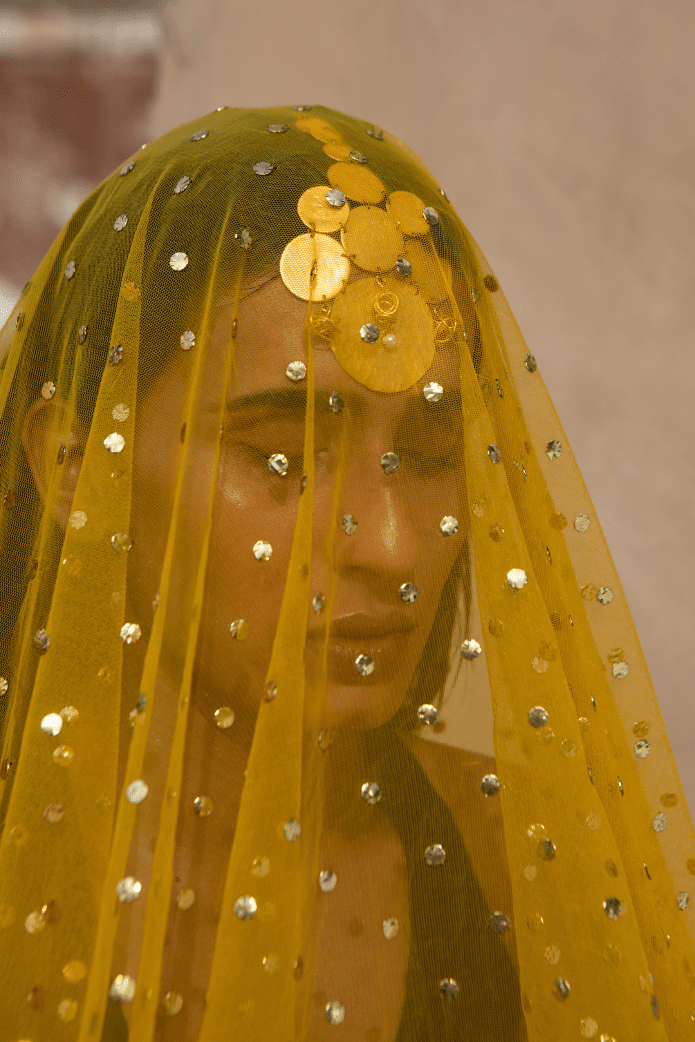
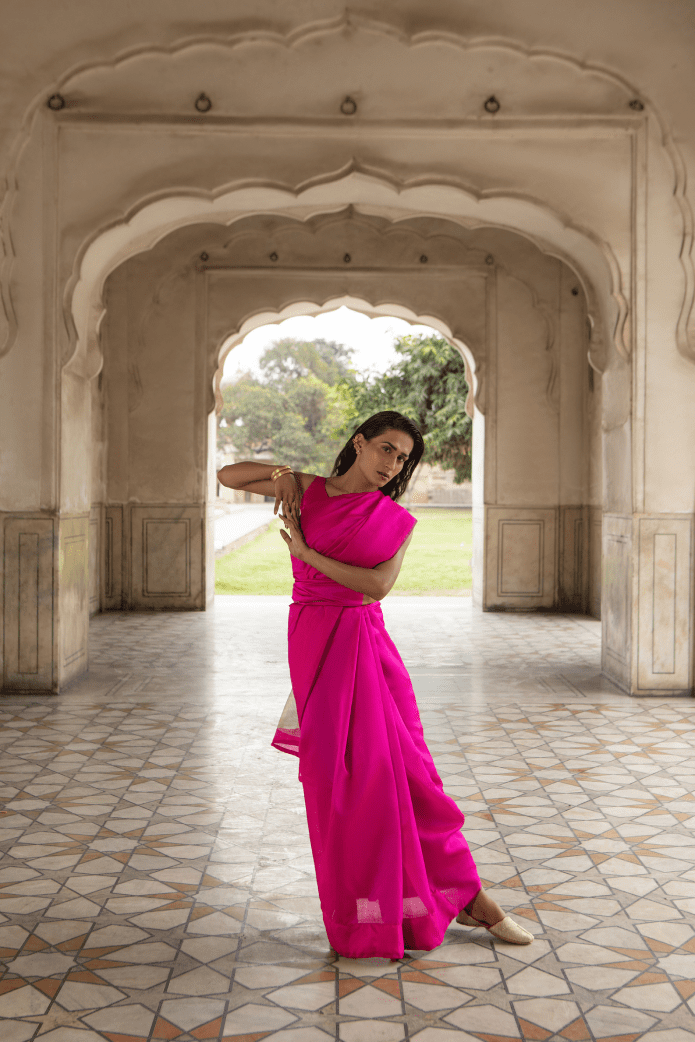
You made your first-ever acting gig, Darling, in 2019. What was your life like before your grand acting debut?
I used to perform in dance functions because there are few opportunities for Khwaja Sira (transgender people) in Pakistan. Earning money was better and more important to me than education, family or relationships. I had to earn money. That was the only thing I was thinking about. Many trans women opt for opportunities like performing in dance functions (public events where men sit in theatres or public spaces to watch women dance), begging or prostitution which is all that society has offered us. There is little else for us to do. But that life was very difficult and we all faced a lot of hardships.
There were people who were generous enough to invite us to functions (events), but sometimes people harassed us, threw us out of our transport vehicles, shot fireworks at us, and gun shootings were common. Many of my community members have bullet wounds. I used to be very scared. And I used to pray to Allah all the time that “O Allah, make a better resource in my life or give me an opportunity through which I can get out of these problems”.
In the beginning, it was very difficult to earn money but there came a time when I was a good dancer and people started knowing me because of it. I started performing in big functions and used to earn a lot of money. Life was going great but I was far away from family and had already faced a lot of difficulties, and now wanted to somehow make a place for myself in the hearts of my family members.
As a performer, what was it like to step into the acting area and enter a new industry?
The offer to audition for Darling came through a mutual friend of mine, Sana, I had no idea what auditions were, what a mark was, and how to talk in front of the camera. So, I was sadly rejected at the first audition. They hired a cis man who had joined regular acting classes in a local theatre.
Closer to filming time, I remember Saim telling me that the boy couldn’t dance the way that transgender women do. I said that the problem was that he wasn’t transgender and couldn’t do anything we could actually do, and neither could he understand what we face in our real life. Pretending and truly feeling your gender in your soul are two different things. Even after joining three months workshop, things that are natural to us as transgender women, such as how we walk, sit up, talk, or the way we present ourselves as girls, they could not get him to do. The things present in our souls are not artificial or habitual.
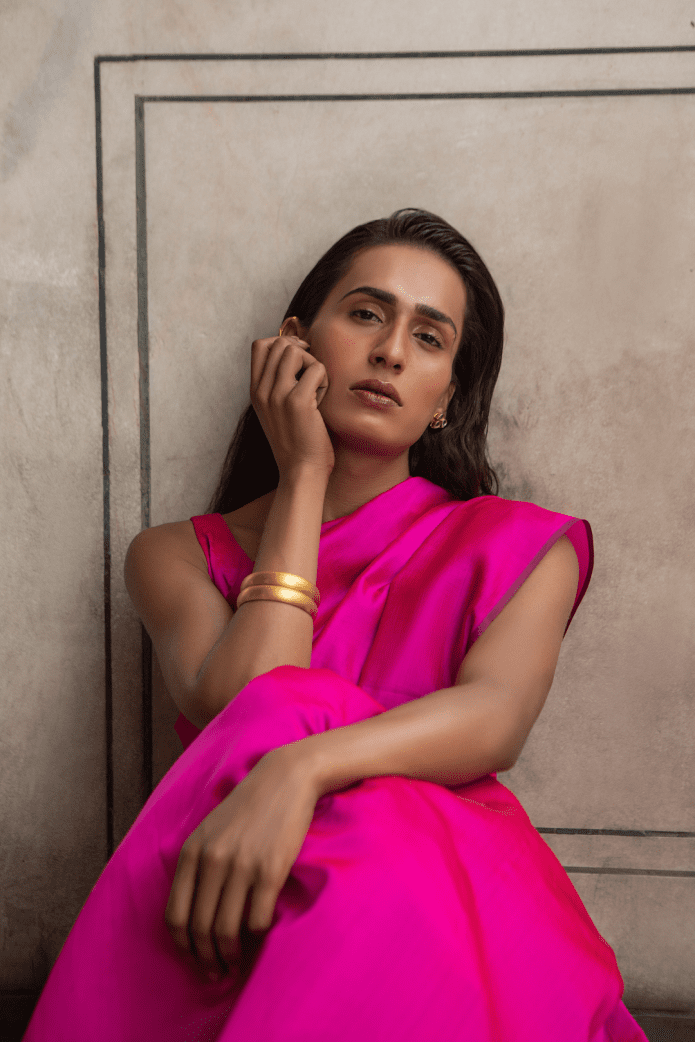
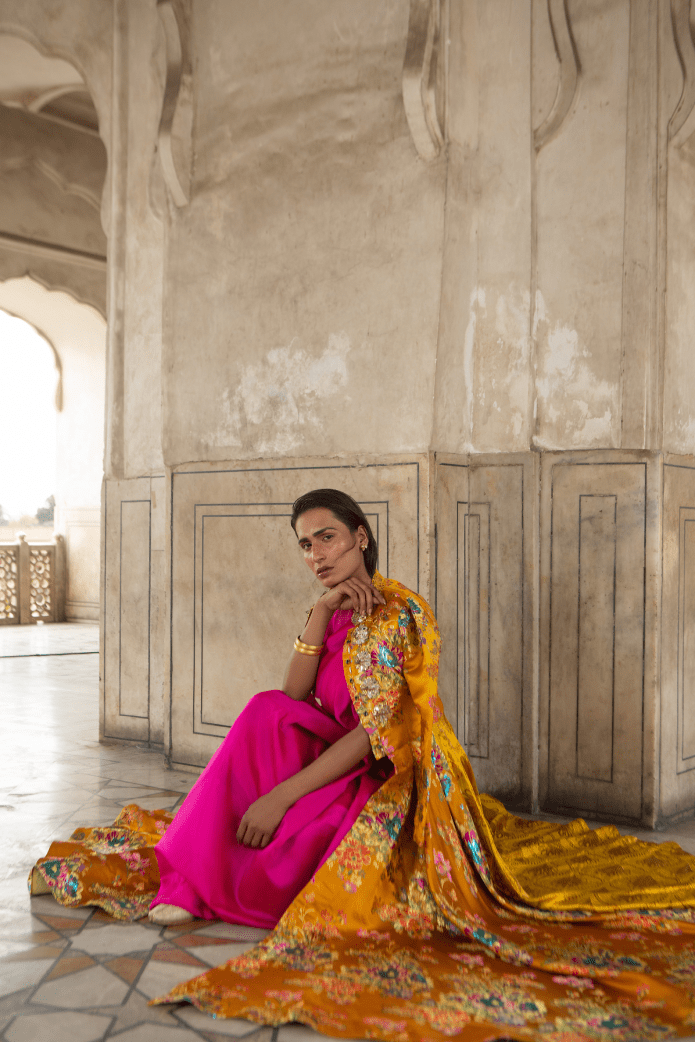
Where did that rejection take you next?
Sana had brought Saim and the boy to my house to see if I could help. The boy got up and started dancing but he was dancing like normal boys and he didn’t have the flexibility and grace that is found in transgender women. Saim said, “I heard you are a very good dancer. So show me your dance.” So, I danced. The next day, Sana called me and asked; “What if tell you to perform in Darling?
Within 2-3 days, I learned [everything] including dialogues. Saim guided me very well. He made me feel comfortable among all the actors, and let them know that a third gender will work with them. So, I was feeling comfortable while thinking I had no issue here and I just needed to focus on my work and perform it well.
What was this acting experience like for you?
As a trans woman, I was pleased and it proved a source of motivation and courage for me. I had thoughts [that] we can do something more than just dance, sex work or beg. We can work with others without any prejudice while becoming a part of their social life. Before this, I had no experience of working so comfortably with others [in Darling]. It was my first experience in the life of an actor and it was perfect.
How has your understanding of acting changed since then?
I knew nothing about acting, industry or social media — and I had no interest in them. I’m a trans woman living in Pakistan. You don’t have time to watch TV or pay attention to be an actor. You move through life and you push forward. It’s not that I didn’t care, I just couldn’t care.
After [my debut] Darling, there was so much acceptance from my family and people had so much love to give me. I began to see the power of it and how inspired young transgender people have become because of it. I’m now paying attention to the actors and to the TV!
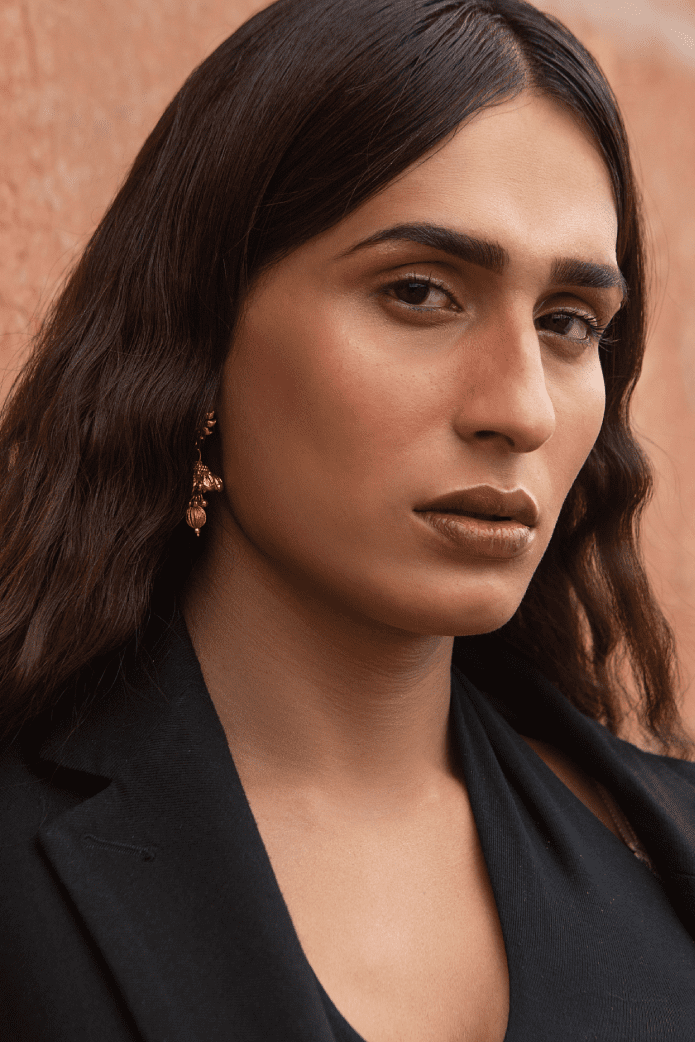
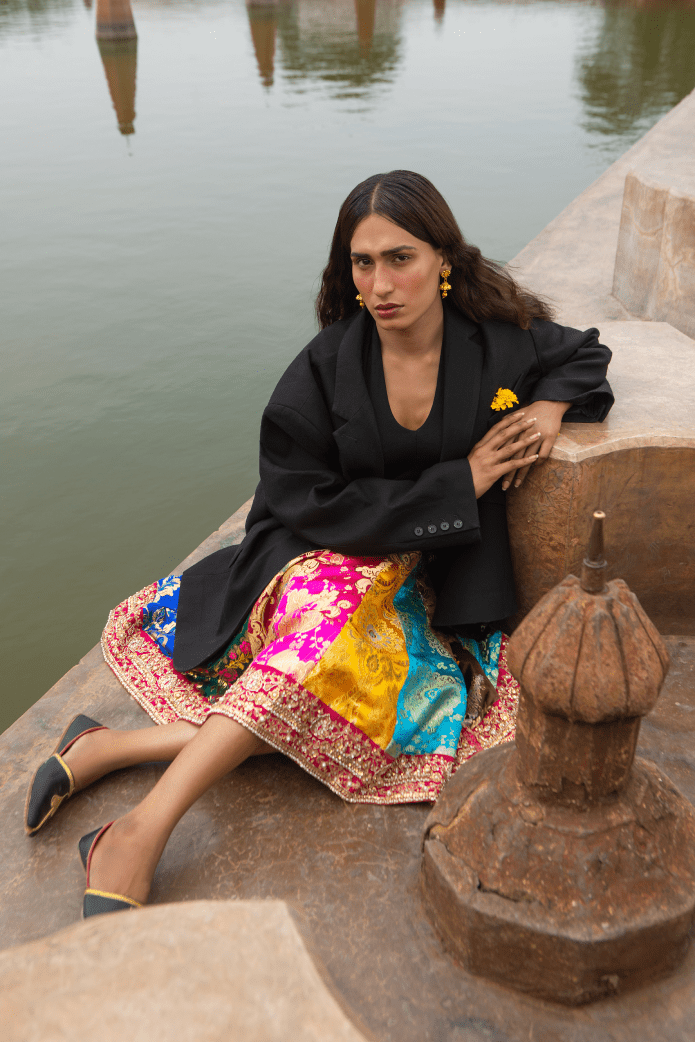
How did you relate to Bilba’s character in Joyland?
Biba and I had many common things in our lives but there were also some different things in us. I have thought over those a lot. She was stubborn and pretentious. She was an angry character and would say her point to one’s face but I control my anger and don’t express it. Sometimes, I feel like I should have expressed my point.
But, with Biba, she knew that if she wanted to live in this society, she would have to live like [everyone] and that society was not going to follow her so she forced her own space. [Biba] had no family and was living a trans life. Her colleagues were involved in sex, begging or protesting, but she was not interested in these things. Rather, she was interested in her [dance] work. She was trying to make some space in people’s hearts and, thus, gain acceptance. She wanted to become a part of society using her own talent. She wanted to see herself in the mainstream, and, in the end, she succeeded in it too.
What was your least favourite scene to film in Joyland?
I’m going to tell you the most favourite scene of mine! I feel like crying when recalling that scene. For me, the best part of the film is when Biba replies to the guys raising questions about her gender asking what organs she had in her upper and lower body. That part was very powerful [and] makes me feel like we are not a downtrodden section of the society. That is not only the voice of Bilba but many transgender people who face these questions while living in society.
People take these things as a joke but it is not so for us. So, through Bilba, that was the scene which made me feel pleased and realise that we are not a downtrodden section of society anymore. That scene showed that we can really fight for our rights and they actually must be fought for at moments like that. I am very proud of that scene and I hope that the transgender people who watch it come out of watching Joyland knowing that they too can speak out like Biba.
This interview has been translated from Urdu to English and condensed for clarity.